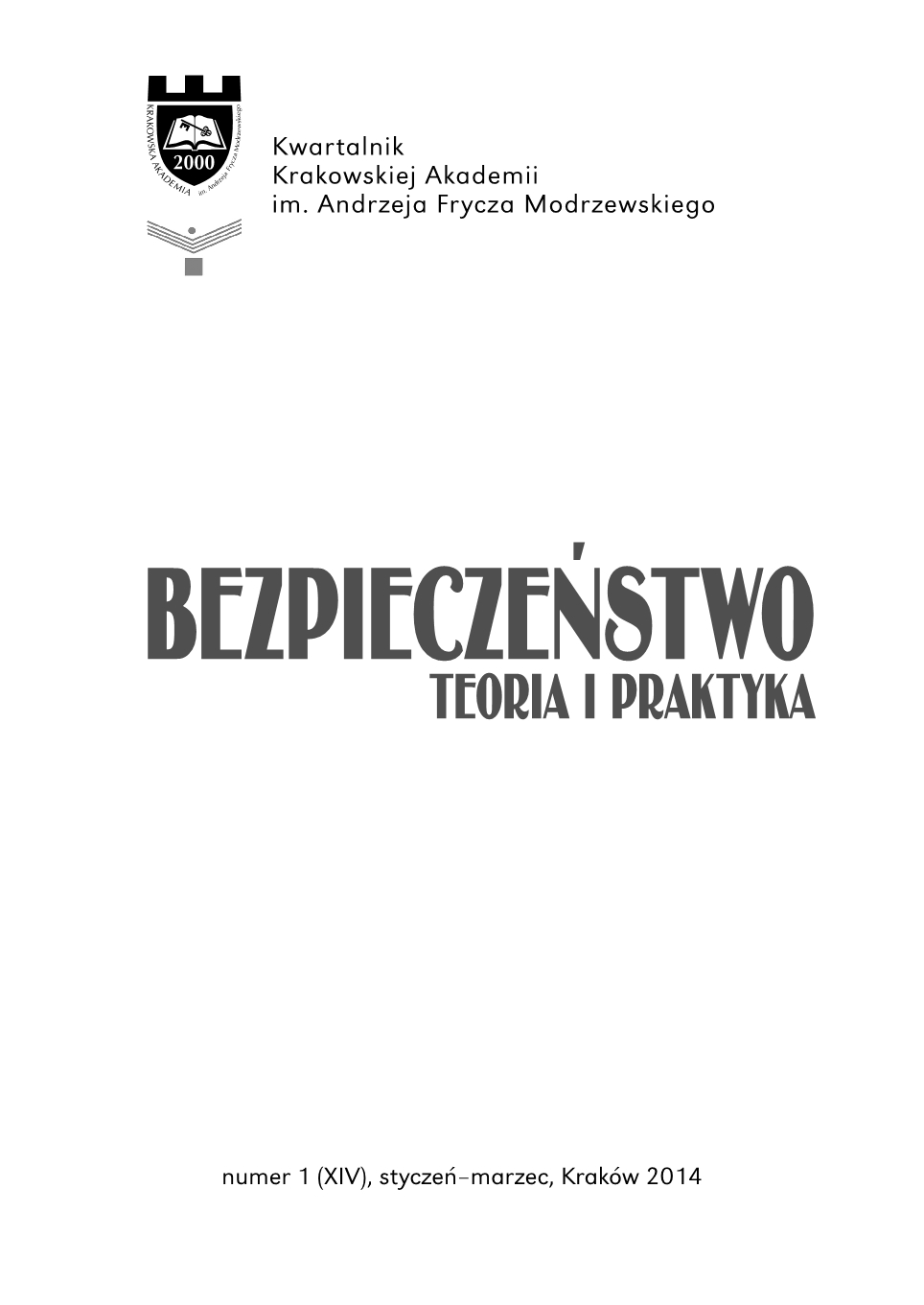
We kindly inform you that, as long as the subject affiliation of our 300.000+ articles is in progress, you might get unsufficient or no results on your third level or second level search. In this case, please broaden your search criteria.

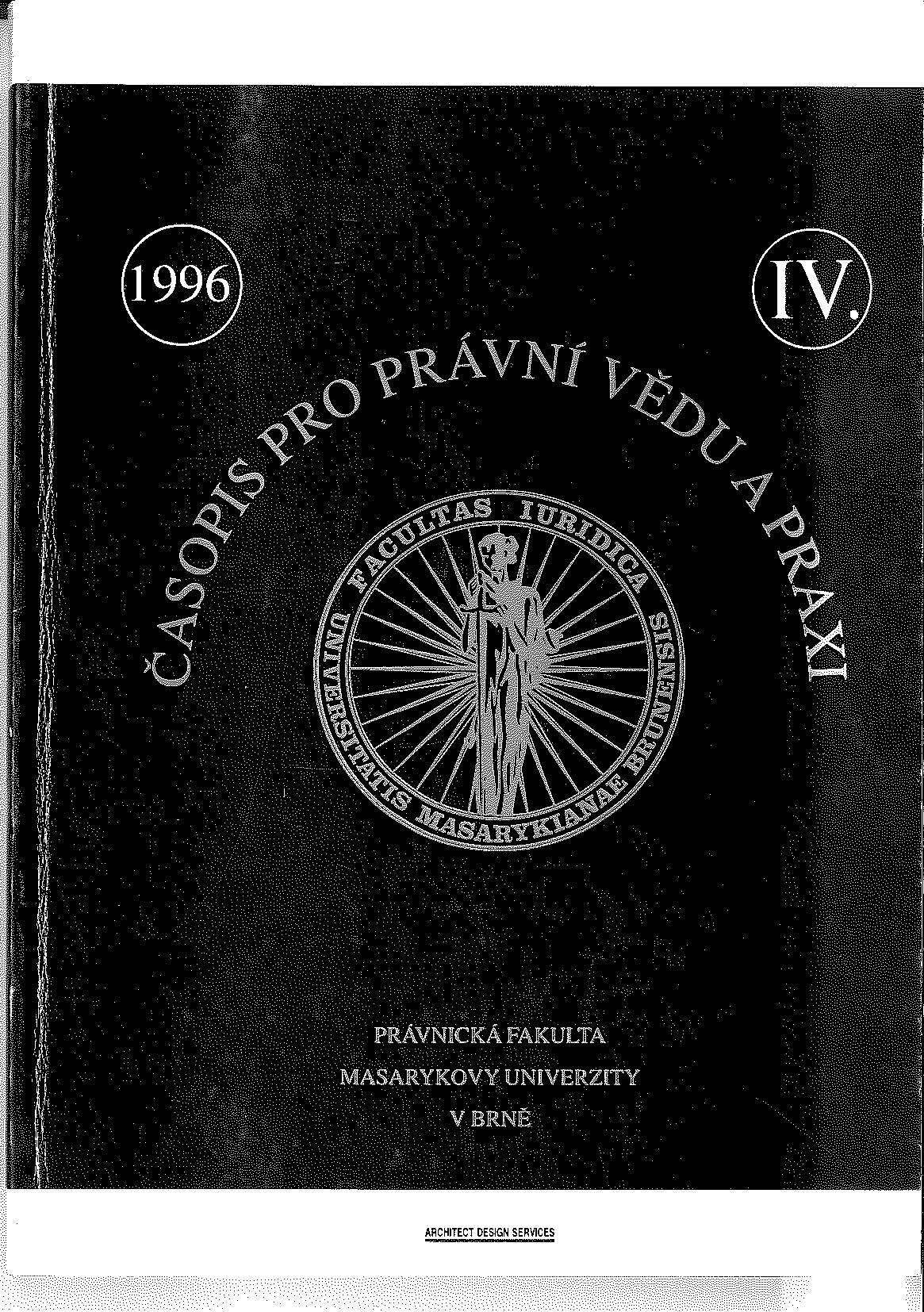
The article discusses Thomas Hobbes' views on the social contract and law. It highlights Hobbes' influence on modern theories of state and law, noting his controversial reception over time. Hobbes is portrayed as a foundational figure in the development of legal positivism and the theory of social contracts, emphasizing the necessity of a strong state authority to maintain order. The article explores Hobbes' belief in the voluntary nature of social contracts, where individuals surrender certain freedoms for collective security. It also examines the interpretations of Hobbes' work by various philosophers, including Jeremy Bentham and Michael Oakeshott, and the ongoing debate about whether Hobbes should be seen as a precursor to totalitarianism or liberalism. The discussion includes Hobbes' views on the role of the sovereign, the nature of laws, and the importance of rationality in establishing social order.
More...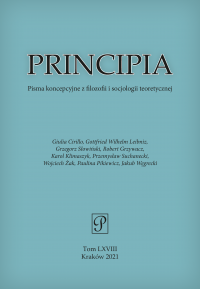
The following article is an exploration of the intellectual journey of the French philosopher Michel Foucault in its latest period, from the Will to Knowledge, first book of the History of Sexuality, up to the later idea of care-of-the-self. The idea of the care-of-the-self is treated here as the culmination of Foucault’s philosophy, as well as its most mature expression. Maturity here means that, according to this concept, the subject is not perceived as the passive outcome of games played between the forces of knowledge and power, as it was presented in the writings of Foucault from the 1960s and 1970s, but, thanks to his own actions, directed at himself, so called practices of the Self, the subject is able to create itself, in separation from the outside influences that bind him. In the context and in contrast to the idea of the care of self is the idea of self-knowledge, a solely intellectual perspective, for which – according to Foucault – the care of the self was abandoned by philosophers for many centuries. A part of the goal of this study is to demonstrate that the concept of the care of the self was introduced through a conceptual evolution, in which certain ideas, gradually changing their meanings, morphed into other ideas, to arrive at the point where the ancient Greek idea of epimeleia heautou, care of the self, was necessary to be introduced. The principal sources for Foucault’s analyses were the writings of Stoics and Epicureans from the 1st and 2nd centuries A.D., as well as the Plato’s dialogue The First Alcibiades. A method of close-reading of the published works of Foucault and the transcripts of his lectures from a period of 1976 to 1982 was used to prove the above mentioned argument. The central goal of this thesis was largely accomplished – it has been demonstrated that Foucault, by examining various Stoic and Epicurean practices of the Self, showed that the subject is not determined to be formed solely as a result of the games of knowledge and power. Thanks to the concept of care of the self, Foucault had drawn a much larger margin of freedom for the individual, than he did in his earlier works.
More...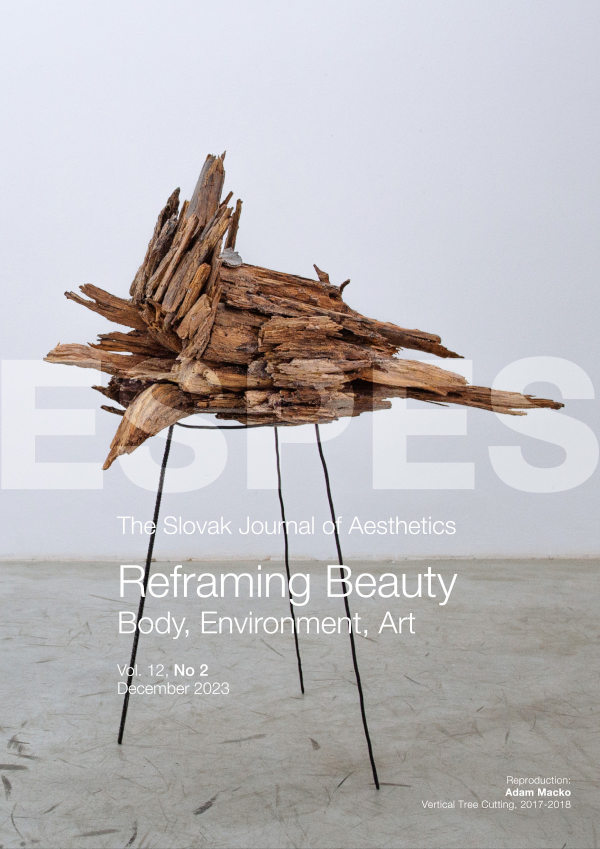
According to what is known as the classic theory, beauty can be defined as unity or formal harmony. To overcome some of the criticisms that it encountered, the American philosopher Jared S. Moore proposed, in his paper from 1942, a modernisation of such theory, by distinguishing various types and subtypes of harmony which, taken together, are intended to cover both the objective and the subjective sides of beauty. Our goal is to look closer to some of the main principles that emerge within Moore’s intricate taxonomy of harmony – most notably, the principles of organic unity, fittingness, and empathy – which in his article are only sketched or implicitly suggested. Employing such supplementations, we hope to make J.S. Moore’s comprehensive view of beauty even more complete from a theoretical standpoint and suitable to face the challenge posed by the modernist and postmodern artistic practices, which seemingly undermined the notions of beauty and formal harmony.
More...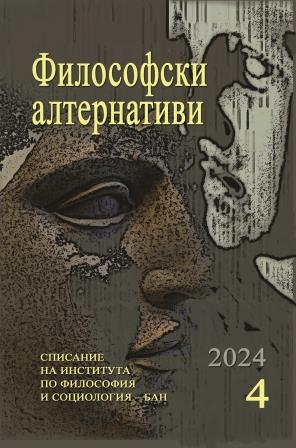
The article presents an attempt to search for a different path to a philosophy of Byzantine iconography, which, through the construct of virtual transcendentalism, heuristically allows to understand the icon as a poster of the logos development of Byzantine doctrinal thought in the context of the logos development of European philosophy, summarized by the concept of logodynamism (a new term introduced by the author), which embeds medieval Christian thought in the logos environment from Heraclitus, Parmenides through Plato and Aristotle to modern European philosophy and enables the search for modern ways of understanding Christian phenomena, such as Byzantine iconography. The article brings out the connection of the icon with the archetypal and contemporary forms of the poster through the idea of message and image as a cultural phenomenon and thus achieves a different ontological status for the icon, making sense of its positioning in the contemporary cultural environment.
More...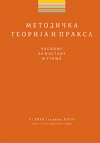
A very brief overview of the definition of several philosophers according to the concept of opinion - Jaspers, Heidegger, Popper and Rorty and initially given views of Freud and Darwin as arche in relation to biological and psychological, ie, philosophical setting of the problem of opinion. Cognitive, comprehensive, instrumental, emotional, social, humanistic, technical, logical, poetic function are just some of the prerequisites for thinking about opinion.
More...
The article analyses the relation between public opinion and public discussion (déliberation) in Rousseau’s work. Some contemporary theorists regard Rousseau as a thinker who rejects the necessity of public debate in political decision-making and deplore the lack of discussion in the process by which the general will is formed. To clarify Rousseau’s position regarding this problem the article explores two paths. First, it analyses the concepts of “general” and “particular” as they relate to interest and will, and the terms used by Rousseau to express the political process: délibération, opiner, voter. The second part reveals how Rousseau understands (public) opinion as an expression of our self-love and why he condemns the creation of particular societies within a political body. In conclusion, we show in what sense déliberation is for Rousseau a necessary condition for the democratic process.
More...
The paper focuses on the motif of hope, which plays an important role in Immanuel Kant’s practical philosophy. Hope builds a bridge between ethics and the philosophy of religion, and it does so as part of the highest good. I examine the notion of hope in Kant’s thought in three steps, based on three texts: Critique of Pure Reason (Canon of Pure Reason), Critique of Practical Reason (Postulates of Pure Practical Reason; Ethico-Theology), and Religion within the Boundaries of Mere Reason (Theory of Radical Evil in Human Nature). I provide arguments to show that, for Kant, hope is a necessary motive. Hope is understood as an attitude of reason, rather than as an emotion. I further demonstrate that in the concept of hope, the desire for happiness intersects with the desire to live well morally. The function of hope, in the context of a lifetime of moral practice, is to help remove obstacles to leading a moral life. Hope is not needed to know what to do. Hope is necessary as a component of the meaningfulness of the whole. The impossibility or loss of hope for the ultimate meaning, as including the achievement of one’s own bliss, would make the lifelong pursuit of morality impossible. Finally, hope turns out to be necessary as a response to the thesis of radical evil in human nature.
More...
In the 1930s, the playwright Bertolt Brecht had a marked impact on Walter Benjamin’s life and thinking. Brecht’s epic theatre inspired Benjamin to write several texts in which the philosopher explores the concept of the “quotable gesture”. This article aims to offer an interpretation of the quotable gesture as a methodological tool for the critique of the modern alienation of tradition and the crisis of thinking. Drawing on selected essays, I analyse the principle of gestural citation as a critical-hermeneutical principle in which common pre-understanding is to be suspended in favour of particular attention towards the phenomenal and to one’s own thinking.
More...
Interview of Jakub Sirovátka with Maximilian Forschner and Rudolf Langthaler. In September 2023, an international conference titled "Freedom – Morality – Religion: Kant’s Philosophy of Religion – Offering and Challenge for Today" took place at the Catholic University in Linz, Austria. It honored two prominent Kant scholars, Maximilian Forschner and Rudolf Langthaler, both celebrating significant anniversaries. Forschner, a professor emeritus of philosophy, focuses on Stoicism, the philosophy of Thomas Aquinas, and Immanuel Kant, with his latest work delving into Kant's practical philosophy. Langthaler, a professor emeritus at the University of Vienna, is renowned for his ongoing dialogue with Jürgen Habermas regarding Kant’s philosophy of religion. This interview explores their reflections on Kant's philosophy, its relevance, and their lifelong engagement with his work.
More...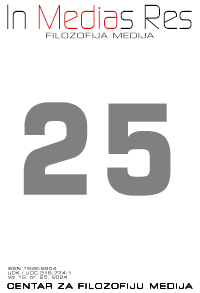
When in philosophy, psychoanalytic theory or the Eastern wisdom tradition, one speaks of ‘self-realization’ (or ‘self-actualization’, Maslow 1982), the entity ‘ego’ (from where we usually derive ‘egoism’ and all its negative connotations) is considered as something that, if we want to progress in the „freedom from-freedom to“ dialectics (Fromm 1941), it is necessary to either, philosophicaly speaking, ‘overcome’ or, through the means of available ‘spiritual practices’, annihilate (in the sense of ‘nirvana’; sanskr.: ‘extinction’). In this way, due to the ambiguity of the term ‘ego’ and linguistic poverty caused synonymization with ‘self’, we inevitably end up in a mental contradiction and, as a result, we give up on praxis. In this paper (which is part of a wider research on philosophical anthropology of Erich Fromm), some of the possible exit directions from one of the ‘aporias of the psyche’, are sketched only.
More...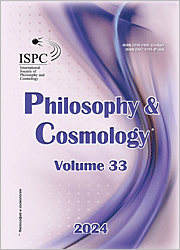
Objective. To show that despite the enormous efforts of M. Heidegger, he failed to find a new way of thinking. Scientific novelty. It is shown that the meeting of two different streams of historical thinking – the destructive thinking of Heidegger, who never stood on the ground of the Pre-Socratics (although he strived for this all his life), and the Pre-Socratic, which gradually lost its vitality in subsequent European culture, never took place. The different streams of thinking – the ancient Greeks and Heidegger – never crossed. The early Greeks sought to understand the nature of essence, that is, they were looking, according to Heidegger, for the first beginning of thinking (and for this they tried to use the tools of openness of thinking, but did not understand its reasons), while Heidegger, who consistently went through a long path of liberation from all the European ones known to him methods of understanding nature, on the contrary, sought to find ways to understand the true nature of human existence, that is, he looked for the second principle of thinking (but also failed to reveal its origins). It was found that European culture throughout its history has stopped between these two extreme streams of thinking – aimed, on the one hand, at the world of things (essence) and, on the other, at the inner world of man (existence), but in both of these streams there are genuine the beginnings of thinking remained unheard. The analysis shows that throughout his life, Heidegger was looking, in fact, not even for being, but for the being of thinking; more precisely, he was looking for thinking that could exist synchronously with the thought of the ancient Greeks, which allowed him, on the one hand, – to reveal the fall of European culture, and on the other hand, to try to find the motives for future thinking. In our opinion, Heidegger heard the main problem of European culture: logos does not illuminate thinking, does not carry either natural or divine light, it is only similar to a given (often artificial) logical scheme. All ancient religions spoke about this. The ancient Greeks knew this; Plato and Aristotle replaced the true divine light with a system of ideas, concepts, categories and logic. It seems that the concealment of the true light (nature and gods) is the path of the fall of European culture, about which Nietzsche, Wagner and Heidegger wrote. Thinking exists only where consciousness disintegrates in the spatio-temporal topos of its existence. And logos, as this study shows, can only exist in a split consciousness. Based on this, it is increasingly clear that we have not learned to think like the Greeks and, moreover, in our selfishness we may finally lose this opportunity. On my own behalf, I would like to add: what Heidegger failed to achieve can be clarified along the paths of contact between Western and Eastern thought.
More...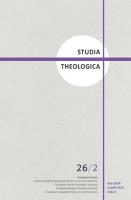
The topic of the study is the phenomenon of the death of God in the thought of Friedrich Nietzsche and its reflection through interpretation and evaluation by the following thinkers: M. Heidegger, K. Jaspers, E. Fink, G. Deleuze and P. Kouba. Special attention is paid to the reasons and consequences of the cultural and dramatic event, which is the death of God. Attention is also focused on the personality types that are characteristic after the death of God and on the desirable and undesirable life possibilities that this event opens up. The current reception of Nietzsche’s statement “God is dead” demonstrates that his insight and justification of the consequences that flow from the death of God in the sense of the loss of Christian faith in his existence is justified. The result of the analysis is that there are consequences regarding 1) the current Western metaphysics in its onto-theological structure, 2) the loss of the guarantee of the so called moral interpretation of the world and its “benefits” for a spiritually weak person, 3) the character and spiritual level of a person to project the overall meaning of life. At the same time, in our postmodern era, some consequences of the death of God are confirmed. The argumentation confirms the legitimacy of these three consequences of the death of God. This is the main thesis of the study.
More...
The traditional concept of a temporarily present God in Open Theism more closely aligns with religious and biblical understandings of God than does the classical timeless concept. Divine temporal knowledge and causality require, however, a dynamic theory of time and absolute time, concepts that most theorists of relativity challenge. The standard version of presentism, as proposed by W. L. Craig, has not been well received in the scientific community. A more effective solution to conceptualizing God’s temporal presence in a relativistic universe involves reinterpreting the Theory of Relativity as pertaining to measurements of local times, which do not interfere with the unique cosmic “now”. In this view, Minkowski’s space-time does not need to be interpreted solely as a geometric representation of the effects of natural forces, as Craig suggests, but it can be argued that even if realistic, it does not exclude a unique present.
More...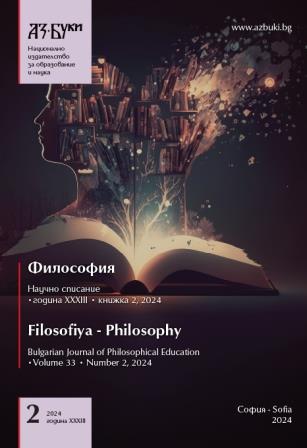
Immediately after his ultimately fragmented main work “Being and Time” (1927), Heidegger had a phase of intensive engagement with Kant, especially his main work “Critique of Pure Reason” (1781). Kant’s topos of the “metaphysics of metaphysics” thus plays a central role. This figure of thought is of central importance not only for the interpretation of Kant, but also for the history of modern philosophy after Kant and after idealist philosophy.
More...
The article examines the significance of the distinction between phenomena and things in themselves for the foundation of Kantian practical reason. It holds that this distinction acquires its full meaning and the entire gamut of its validity only in the sphere of practical reason. In this way, it attempts to show that the Kantian epistemological distinctions and the fundamental steps in the construction of the Critique of Pure Reason are at the same time strategies to support practical reason, thus driven by an emphatically “practical interest”.
More...
The article presents a unique interpretation of Kant’s philosophical development by exploring the relationship between dialectics and criticism. The conceptual analysis of peculiar propositions in some of the philosopher’s early writings reveals essential dialectical insights that lead to critical thinking. The text interprets Kant’s critical methodology from a historical-philosophical and hermeneutical perspective, highlighting its transcendental form of development. Kant’s philosophical development is characterized by the transcendental evolution, which confirms and expands upon the methodological thesis of a necessary transition from the pre-critical dialectics to the philosophical critique.
More...
The article is a short presentation and critical evaluation of the main aspects of Kant’s theoretical and practical philosophy. It focuses on ontological consequences of the so-called Copernican turn that places man in a self-created, phenomenal world, cutting off any hope for his contact with the transcendent reality, independent of man’s cognition. The only escape from this danger of the subjectification of reality is, unjustly criticized, Kant’s acknowledgment of Ding an sich. In the area of practical philosophy, Kant’s ethics of categorical imperative, of good will and the fact of freedom, is an interesting but indefensible project of formal and autonomic ethics that, unfortunately, due to its elitist conclusions cannot fulfil the task of teaching morality. In the light of development in cultural anthropology and hermeneutical philosophy of life, Kant’s position needs to be significantly updated.
More...
This article gives a synopsis of one of the fastest expanding in the last few decades interdisciplinary scientific fields keeping aesthetic problems and questions in its core, that of sensory studies, in order to sift out and systematize their interpretation of Kant’s aesthetics from his Critique of Pure Reason, Critique of Judgement and Anthropology from a Pragmatic Point of View. On that basis, six general conclusions are drawn on the interpretability and actuality of Kant’s transcendental aesthetics, analytics of the beautiful and the sublime, division of the fine arts, and his later observation on the outer senses – through the lens of sensory studies.
More...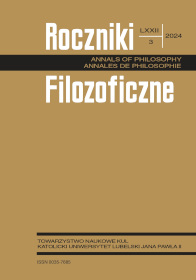
In Nazarenus: Or, Jewish, Gentile, and Mahometan Christianity, written in 1709–10 but pub-lished in 1718, the Irish-born freethinker and republican John Toland (1670–1722) provided a novel, heterodox account of Judaism, Christianity, and Islam, which he described as the three phases or manifestations of the same monotheistic tradition. Toland wrote Nazarenus after exam-ining, in Amsterdam, an Italian manuscript that was believed to be a translation of a “Gospel of the Mahometans.” Identifying this text with the apocryphal Gospel of Barnabas, Toland argued that this gospel contained the beliefs of the Ebionites or Nazarenes, whom he regarded as the first Christians. Drawing on this manuscript and on several canonical and noncanonical sources, as well as the works of modern Hebraists, Orientalists, and biblical scholars, Toland described Mo-saic Judaism, primitive Christianity, and early Islam as grounded in the law of nature. According-ly, he maintained that the core of these three religions, and of “true religion” in general, was natural morality, which he considered to be universal, eternal, accessible to natural reason, and restored by Moses, Jesus, and Muhammad. Thus, he added that the ancient Israelites, the first Christians, and the early Muslims practiced toleration of all those who respected the Noachic precepts, which he deemed consistent with the law of nature. Toland’s argument for religious toleration in Nazarenus has been defined as a “historical argument.” Toland indeed buttressed his stance on toleration with his reinterpretation of canonical material and Judeo-Christian and Islam-ic apocryphal sources, which he appropriated to his philosophical and political agenda. However, Toland’s argument for toleration in Nazarenus is essentially a deistic argument, because it is based on a deistic view of “true religion” as natural religion, which is fundamentally a moral religion and which, according to Toland, is at the origin and core of Judaism, Christianity, and Islam.
More...